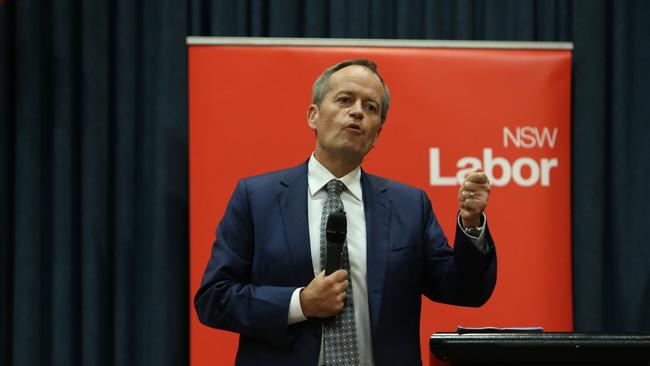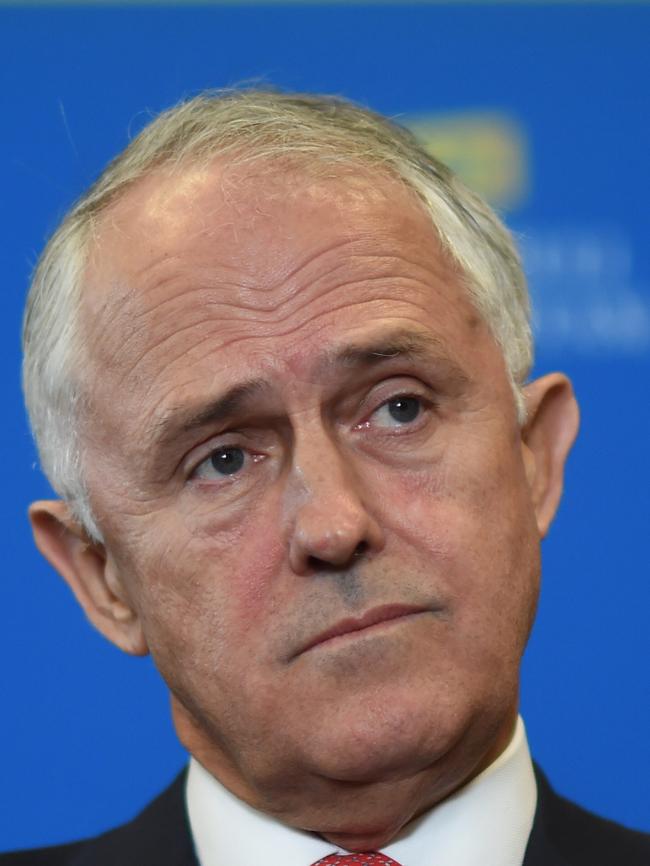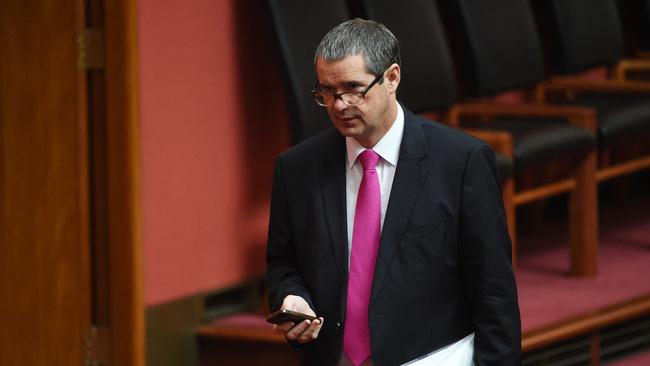AFP raids cause chaos but hurt Malcolm Turnbull, says Laurie Oakes
THE Australian Federal Police may have raided a Labor shadow minister’s office and a Labor staffer’s home, but Laurie Oakes says it’s Malcolm Turnbull that they hurt.
VIC News
Don't miss out on the headlines from VIC News. Followed categories will be added to My News.
THE Australian Federal Police might have raided the Labor Party, but it’s Malcolm Turnbull that they hurt.
Thursday night’s searches of a shadow minister’s office and a Labor staffer’s home — unprecedented action in the middle of an election campaign — had Bill Shorten and his lieutenants jumping up and down in fury.
Labor smelt a conspiracy, even though it now seems clear that the AFP was acting independently of the Government and the timing had nothing to do with the July 2 election.
The raids had to go ahead when they did, according to AFP Commissioner Andrew Colvin, because “the offending has been ongoing”.
The “offending” Colvin referred to is the leaking of documents and information from inside the National Broadband Network.

The material blows the whistle on delays, costing errors and confusion in the NBN during Turnbull’s period as Communications Minister before he seized the prime ministership from Tony Abbott.
In other words, it calls Turnbull’s competence into question in a big way, and that is not something he will welcome six weeks out from polling day.
The leaks started with publication of details from a confidential internal report, dated November 3 last year, casting serious doubt on savings Turnbull had claimed from his redrawing of Labor’s NBN plans.

A month later, The Australian got hold of documents it said showed the NBN faced “a tenfold blow-out on what it originally thought it would cost to remediate the old copper network that forms the basis of the coalition’s fibre-to-the-node roll-out”.
The following week Fairfax used more leaked material in a report headed “Malcolm’s mess: How the Coalition’s broadband network rollout election promises came unstuck”.
At that point, the NBN brass, presumably embarrassed on their own behalf as well as that of their former minister, called in the cops.
But the leaks did not stop. In late February another highly damaging document emerged — an internal NBN progress report marked “commercial in confidence” and “for official use only”.
It showed a plethora of problems while Turnbull was minister in charge, among them that the project had fallen two-thirds short of its benchmark construction timetable and connection costs to houses and businesses had blown out.
The police clearly suspect that former Labor Communications Minister Stephen Conroy, or a Labor staffer played a “middleman” role in getting the material from the NBN to journalists. Hence the raids.

But the drama surrounding them draws renewed attention to revelations about Turnbull’s performance as Communications Minister that he would prefer to remain hidden.
Thanks to the AFP, and the NBN executives who called them in, the apparent mismanagement on Turnbull’s watch is now at the centre the election campaign.
Outside the immediate context of the election, however, there is a deeper issue involved.
If Parliament is to work effectively, MPs and senators need to be able to have confidential dealings with whistleblowers and others.
This is the basis of Conroy’s claim of parliamentary privilege over the documents and electronic records seized from his office by the AFP.
The last time something like this happened was in 2000, when AFP agents and Defence Department security officers raided the home of Dr Philip Dorling, an adviser to the then shadow minister for Foreign Affairs, Laurie Brereton.
It was part of an investigation into the leaking of Australian government documents about the role of the Indonesian military and militias in violence in East Timor.
Brereton went feral in Parliament, claiming that Dorling was his agent and records seized related directly to his parliamentary duties.
As a result, a memorandum of understanding was drawn up to cover “the execution of search warrants in the premises of members of Parliament”.
The AFP separately prepared a national guideline for its agents “for the execution of search warrants where Parliamentary Privilege may be involved”.
There was some argument yesterday over whether a section of this guideline — specifying officers should “limit the amount of material that is examined in the course of the search”-- had been breached in Thursday night’s operation.
Just as fundamental is the issue of whistleblower protection. The whole aim of the police involvement is to identify and punish someone who has revealed information about a government-owned enterprise that taxpayers might think they have a right to know.
It is interesting that Turnbull has no problem with this, given his eloquent defence of whistleblowers in the famous Spycatcher trial which brought him international fame as a young lawyer 30 years ago.
Nor should it be forgotten that Turnbull, when he was opposition leader, was happy to accept and use leaked information from Godwin Grech, his mole in Treasury.
Grech was no whistleblower, but a political partisan prepared to lie and even forge an email.
It was an AFP raid, of course, that exposed the forgery and almost destroyed Turnbull’s political career.
He recovered, but these latest raids have done him no favours.
Laurie Oakes is the Nine Network political editor.


